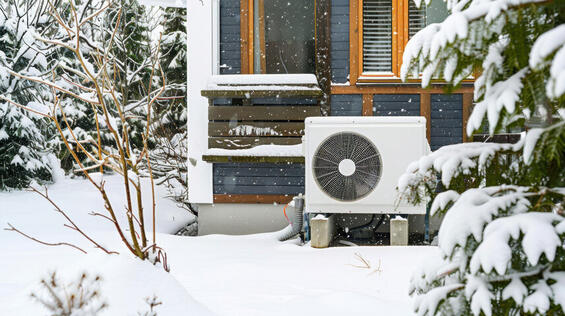Summary
The Department of Public Utilities (DPU) is committed to helping Massachusetts residents stay informed about their energy options, access available assistance, and manage their energy costs throughout the winter season. For customers who seek to better understand their bills, the DPU provides information below, explaining how energy costs are determined. The DPU also approved new rate structures, including seasonal heat-pump rates available beginning November 1, 2025, which are designed to encourage, and make more affordable, efficient electric heating.
Customers who need help paying their bills may qualify for assistance through programs such as the Home Energy Assistance Program (HEAP), utility discount rates, or payment plans and arrearage management programs (AMPs). Details about these resources are available below.
The DPU continues to advance initiatives aimed at improving affordability, such as the ongoing Energy Burden Inquiry and efforts to establish discount rates for moderate-income customers.
Gas heating

The winter heating season marks a scheduled change for the gas companies to switch from the summer rates to winter, or “peak season” rates. Residential customers who seek to better understand their bills can see a comparison of the rates for this winter compared to rates from last year.
While the DPU cannot adjust the price of gas for customers (the supply rate), it can make decisions to reduce components of the distribution adjustment rate as well as the delivery rate.
This year, the DPU made 2 decisions that help to lower delivery rates. The DPU ordered a reduction of the Mass Save 3-Year Plan budget by $500 million that is recovered through the energy efficiency surcharge (EES). The DPU also lowered the cap for the Gas System Enhancement Program (GSEP) for each gas utility, reducing the charge to keep spending in line with the DPU’s decisions.
To find out who your gas provider is, please use this interactive tool to find your city’s or town’s utility providers.
During the winter heating season, which starts on November 1, 2025, customers rely on their heating systems. Increased use and pricing of supply rates—for both gas and electric heating—means bills will be higher compared to bills during other times of the year when we use less energy.
Congress deregulated the price of gas supply several decades ago and the DPU’s role in reviewing the gas companies’ supply rate requests is limited. When gas companies submit their winter rate adjustment filings, the DPU carefully verifies that the information provided is accurate and the cost of gas is based on forecasted sales and forecasted market prices for natural gas. Gas companies do not make money on this cost to ratepayers.
The DPU can deny or adjust the costs proposed by the companies only if the information is not accurate or is inconsistent with regulations.
Heat-pump rates

Starting November 1, 2025, the three investor-owned electric utilities (Eversource, National Grid, and Unitil) are offering new, seasonal heat-pump delivery rates to their eligible residential customers. The new rate will be available for residential and residential low-income customers who heat their homes with heat pumps.
| Electric Utility Company | Seasonal Heat-Pump Rate | Non-HP Base Distribution Rate (R-1) | Effective Date |
|---|---|---|---|
| Eversource | Base Distribution Rate: $0.02052 per kWh | $0.06264 per kWh | November 1, 2025 |
| Transmission Rate: $0.01492 per kWh | $0.04545 per kWh | ||
| National Grid | Base Distribution Rate: $0.02440 per kWh | $0.06677 per kWh | November 1, 2025 |
| Unitil | Base Distribution Rate: $0.03633 per kWh | $0.10176 per kWh | November 1, 2025 |
Please note that the rate below is one component of the total distribution rate and does not reflect all distribution rate charges listed on your bill.
Once a customer is enrolled, the seasonal heat-pump rate will apply to all household electricity usage from November 1 through April 30. Your supply rate on your electricity bill will not change because of the seasonal heat-pump rate.
Winter shut-off moratorium
The DPU has expanded the residential service shut-off moratorium for this winter. The shut-off moratorium began on October 27, 2025, and will end on April 1, 2026, instead of the typical time period as outlined in state law. The shut-off moratorium applies to residential customers of the investor-owned electric and gas companies regulated by the DPU, and for this winter, Municipal Light Plant customers are also covered. These utility companies cannot shut off heating service to residents who demonstrate they are experiencing financial hardship.
Any customer experiencing financial hardship should contact their utility to learn about the additional assistance programs offered like budget billing and extended payment plans to make your utility bills more manageable.
-
Open PDF file, 91.4 KB, Shut-off Protection Flyer (English, PDF 91.4 KB)
Available assistance programs
There are many available programs offered by the utilities to help manage bills. Below are a few options that may be available to you.
Discount rate
The utilities offer a low-income discount rate for eligible customers. Massachusetts residents that are on certain government benefits programs are automatically enrolled in the low-income rates.
Certain gas customers are eligible for a 25% discount, and certain electric customers may be eligible for a discount ranging from 32 to 71% depending on your electric utility.
You may be eligible for a discount on your electricity or gas service. Please contact your utility company to help enroll you on the rate if you qualify.
Gas
- Berkshire Gas
- Eversource - NSTAR Gas and Eversource Gas Company of Massachusetts
- Liberty Utilities
- National Grid
- Unitil
Electric
Payment plans and AMPs
You may be eligible for a payment plan for your utility bills or an AMP (Arrearage Management Program) that will give you both a payment plan and bill credits for timely payments.
Please contact your utility company to help you enroll if you qualify.
Gas
- Berkshire Gas
- Eversource - NSTAR Gas and Eversource Gas Company of Massachusetts
- Liberty Utilities
- National Grid
- Unitil
Electric
HEAP or fuel assistance
HEAP (Home Energy Assistance Program) can help you pay your utility bills if you qualify. To learn more about HEAP eligibility rules and for a list of fuel assistance offices, please visit MassCAP.
Consumer contacts
If you are experiencing an issue with your utilities, below are the contacts for each gas and electric utility operating in Massachusetts.
Having a problem with your utilities?
If you are a resident or a business owner in Massachusetts and have a question or concern about a bill from your utility, please contact the company first to allow them to rectify the issue.
Gas
- Berkshire Gas
- Eversource - NSTAR Gas and Eversource Gas Company of Massachusetts
- Liberty Utilities – Blackstone
- Liberty Utilities – Fall River/North Attleboro
- National Grid
Electric
Still have a problem?
If your issues have not been resolved by your utility company, the Consumer Division may be able to help.